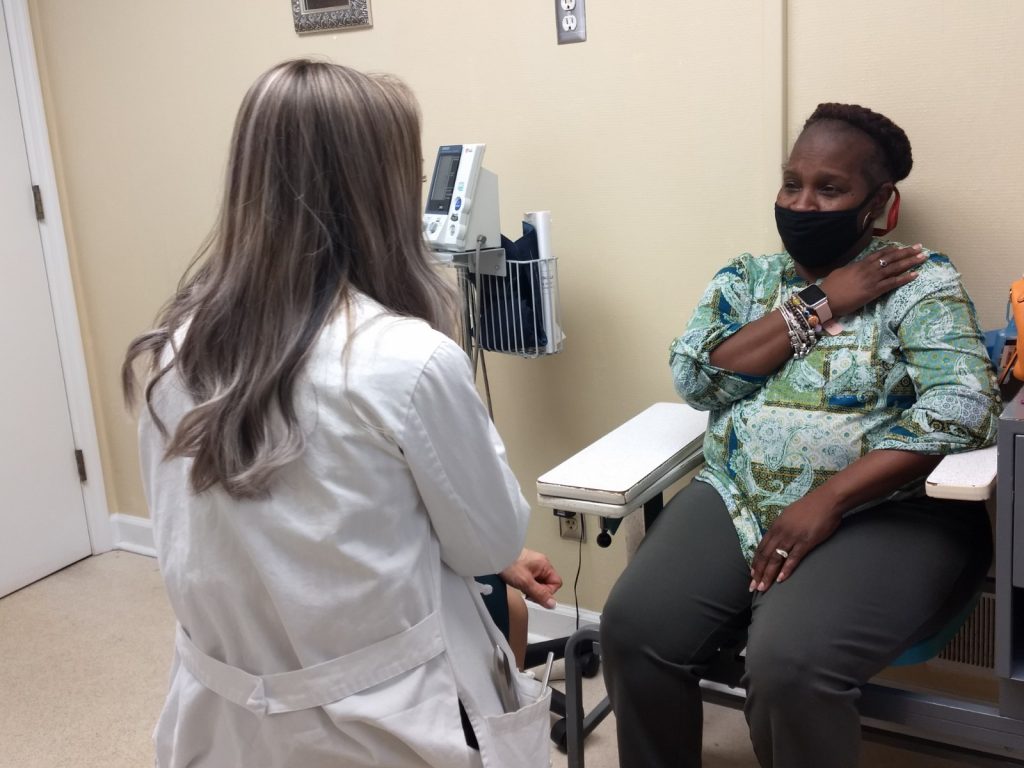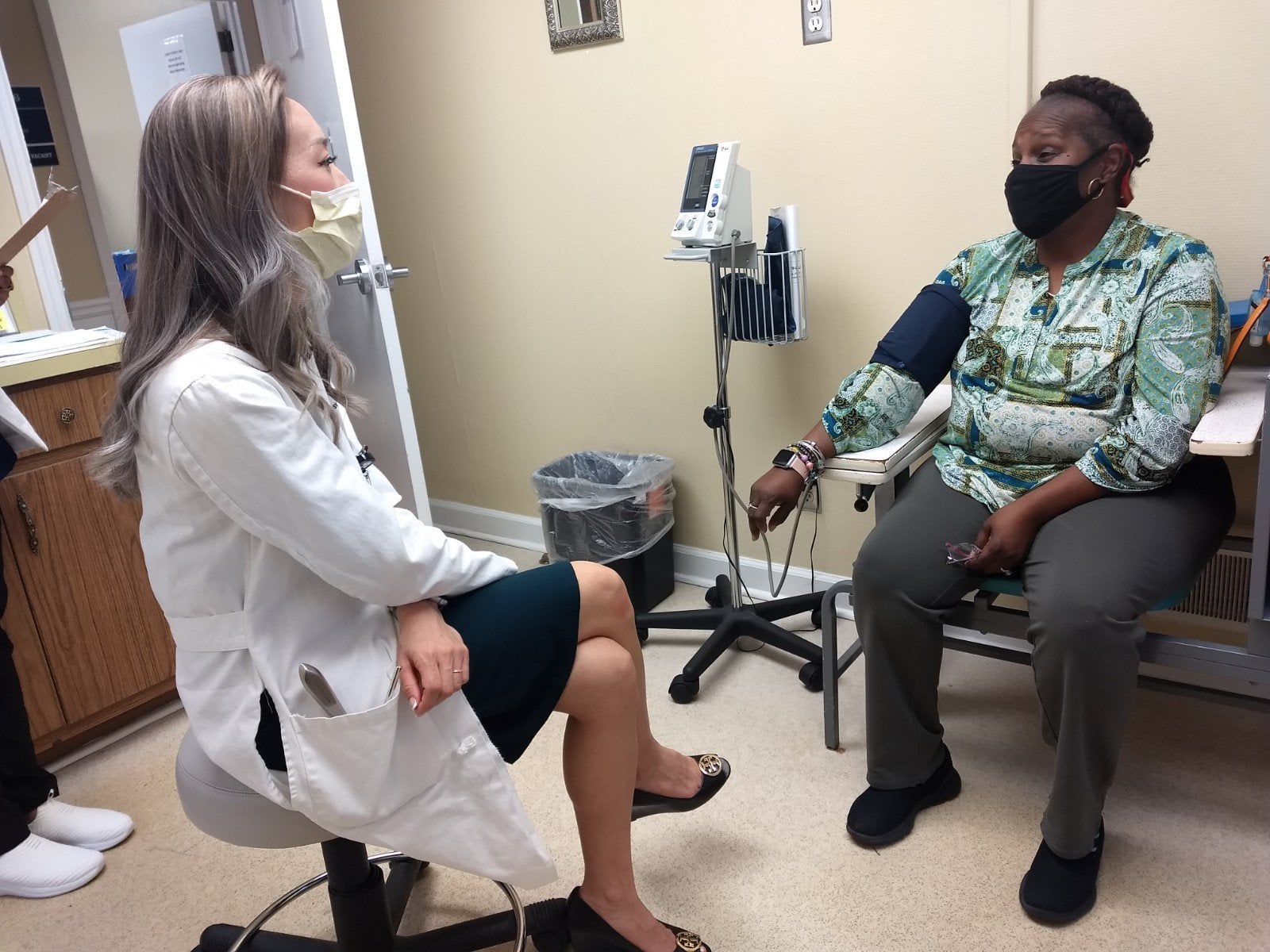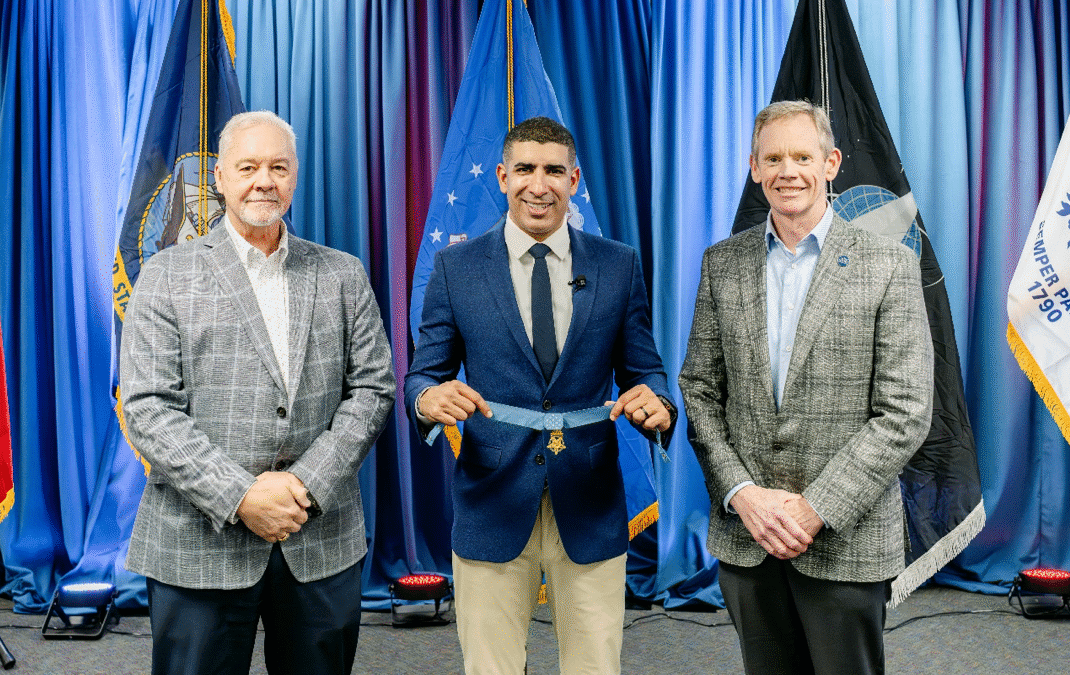Cassandra Travis couldn’t smell the burning bacon.
It wasn’t until someone asked what the smell was that the Augusta woman realized the bacon was about to catch fire.
Loss of smell and taste were some of the symptoms Travis had when she contracted COVID-19 in January 2021. Her symptoms early on were mild. It was two months later that she started feeling bad.
[adrotate banner=”72″]
“Headaches, shortness of breath or fatigue and then like a heaviness in the chest,” said Travis, who recently joined a study about the impact of long COVID. “I work in the school system. So, we used to walk five miles every morning, then I got to the point where I just couldn’t even walk from the parking lot to my car.”
CONGA, the COVID-19 Neurological and Molecular Perspective Cohort Study in Georgia, has enrolled 355 patients so far to study the impact of Long COVID, a baffling number of lingering effects that plague people who contracted the virus.
Travis recently joined the study at the urging of her sister who told Dr. Elizabeth Rutkowski, a neurologist, Travis had lost her sense of smell and taste and relayed the burning bacon story.
Rutkowski said they want to enroll 500 test subjects and are still accepting participants. Travis is also an important member of a subset they hope to recruit.

“I think we really wanted to do a big study like this here in Augusta in the CSRA, just because our population is very diverse,” said the doctor. “And we had been hoping to recruit about half African Americans, which is reflective of our underlying population here. And we’ve been able to recruit, I think, about 40% African Americans, which is excellent.”
The CONGA study at MCG is one of several being conducted around the country. But the local study is more labor intensive than many of the others. The tests do a deep dive into patients’ overall health and response to the virus.
“We’re doing very deep profiling with blood tests, in depth cognitive studies, both on an iPad and on paper, we’re doing a neurological exam, which is kind of what I help with, mood questionnaires to look for underlying anxiety and depression, all of which have increased in the setting of both the pandemic and probably COVID, also. And a closer look into the patient’s unique profile and demographics, such as, you know, the types of medications they take, what kind of medical problems they have, whether or not they smoke, or drink, and all that,” said Rutkowski.

Travis was put through the neurological tests during her first visit on Feb. 2. She and other participants are also given a kit to conduct at-home tests, particularly on taste.
“So, the hope is to do a five-year-long study to see how patients improve or not improve and how long most people are experiencing their long term COVID symptoms,” said Rutkowski. “For some of that depends on continued funding.”
The National Institutes of Health became interested in the lingering effects of the virus and gave MCG $308,000 in emergency COVID-19 funding to study long COVID.
Dr. David Hess, Dean of the Medical College of Georgia said, “We were funded by the NIH to have a cohort of patients that were infected with the virus, and we would follow them and see what the prevalence of long COVID was.”
The money from NIH funded the first year of the study. In June 2021 local philanthropists, TR Reddy and his wife Dr. Anjiji Reddy, Jim Hull, chair of the AU Health System Board and a member of the Georgia Board of Regents, and Ronnie Powell, owner of Powell Construction in Appling, added another $300,000.
“We didn’t know that there would be long COVID, but we have some hints based on prior Coronavirus, pandemics that were much smaller, that there was something funky going on with the brain,” Rutkowski said. “Now, that we’re this far out, and so many of our patients, probably about 30%, are experiencing long term COVID symptoms we’re like, ‘Wow, thank goodness, we started studying this right at the onset of the pandemic.’”
To find out more about the MCG CONGA study, or enroll as a test subject, email CONGA@augusta.edu.
Dana Lynn McIntyre is a general assignment reporter for The Augusta Press. Reach her at dana@theaugustapress.com











